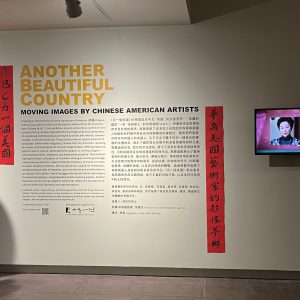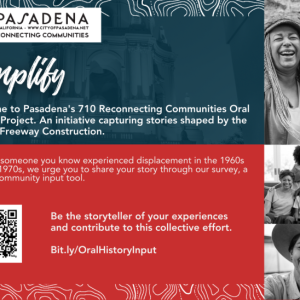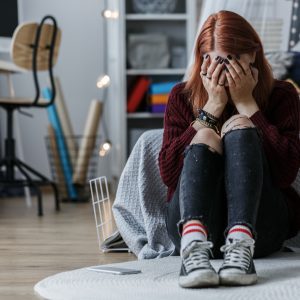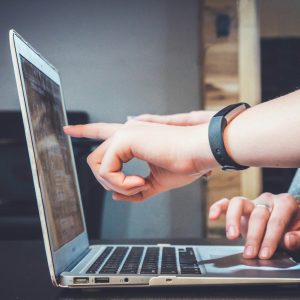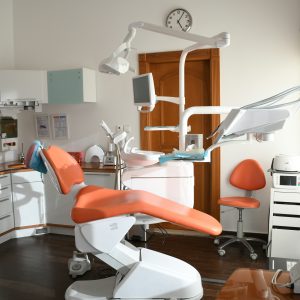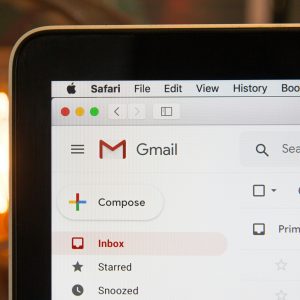 View Winners →
View Winners → 
Even before crossing paths, Brain Femminella and Travis Chen both had a passion for addressing mental health. Yet, they had different motives for doing so.
Chen, who was born and still lives in Arcadia, grew up under constant pressure. Raised in an Asian American community, he explains that an intense focus on education — particularly on college applications, AP classes, SAT scores and so on — created a “stigmatized” environment. He learned the importance of meditation through his upbringing, and when he attended the University of Southern California it was meant to be a refresh; a period of time where he could focus on personal fulfillment.
Yet, tragedy struck his sophomore year. While reading a new edition of The New York Times he recognized a name, a childhood friend who was currently attending a university on the east coast. Unfortunately, the words he read unveiled the horrible truth that Chen’s companion took his own life.
“From that moment on I knew I wanted to do something in regard to mental health,” Chen said. “When I found out, it was the first time I checked into my university’s Health Center. It was just devastating to experience loss and to see so many people suffering.”
It was an opportunity for him to address a deeper issue that affects millions of people across the world, including himself. And through this pursuit, he connected with another USC student in Femminella, who at the time was majoring in intelligence, cyber operations and political science. Before that, though, Femminella joined the military at 17.
He also faced a tragedy with a personal friend, who lost a majority of his memory after a training accident overseas. And beyond this personal incident, Femminella also noticed several of his fellow soldiers suffering from post-traumatic stress disorder (PTSD) symptoms. That was enough influence for him to begin conducting research on the connection thanatosonics — the relationship between sound, violence, and the human relationship — has with PTSD, among military officials. And more importantly, to fulfill the desire for a platform in which those people can obtain therapy.
“I saw this need for change and a different approach to addressing mental health. And I decided I wanted to be a pioneer and an innovator for that change. I wanted to bring a team together to create technology that can help people within the space, especially for current and former soldiers who don’t have a lot of mental health outlets” Femminella stated.
He wanted to focus on the idea of sounds in battle and how music therapy can play a role in benefitting soldiers and veterans, so he worked with Thornton School of Music professor Scott Spencer. They conducted three studies together over the span of two years, and they noticed a significant development that proved their theory true: that music therapy has the potential to positively impact soldiers’ mental health and performance.
With this, the idea of SoundMind, a new wellness audio and visual music therapy mobile application, was born.
Femminella, currently the CEO of the application, and Chen, the COO who focuses on a majority of the business operations, were roommates in Washington D.C. and moved back to the west coast before travel became heavily restricted in 2020. The universal realities of the pandemic hit Femminella and Chen when they made it back to California, but it did give them more time. They both left their previous jobs and dedicated nearly all of their time to the mobile project, which certainly was a much-needed tool that could help the millions of people struggling with their mental health during the pandemic.
“During COVID-19, it became very clear to us that there was a need for this sort of service,” said Femminella. “It was and remains an incredibly difficult time, and nearly everyone’s mental health has taken a hit over the last year and a half. But Travis and I took advantage of that stressful time and used it to execute.”
SoundMind was founded in January 2021 when hospitals across the country struggled to keep up with an influx of COVID-19 patients and before the vaccine was easily accessible to a majority of the American people.
With the long-lasting effects of the pandemic continuing to show its face, the app has blossomed into a unique therapy space that provides a wide range of features not just for the active military and veteran community, but also for college students, pandemic first responders, members of the LGBTQ+ plus community, people of color and more.
The application’s foundational function is known as the music composer. Using a selective process where the user picks sounds that they enjoy listening to, the app then constructs a personalized composition that the individual can enjoy and also share with other people on the app.
However, there are several other features that both Femminella and Chen are proud of. The mood tracker setting allows users to journal their thoughts and discover potential weekly patterns in their frame of mind. There is also the rapid response feature, which is an optional resource that asks people to add emergency contacts into SoundMind. In case there is an instance in which someone is not feeling well emotionally, the app can send their location and an emergency message to their loved ones.
“That function is very important to both of us,” Chen mentioned. “It acknowledges the difficulties and challenges that people who are suffering have when making that push to reach out for help. And we wanted our app to make that step easier for our users.”
Since the inception of SoundMind, Femminella, Chen and the rest of the team have raised half a million dollars from leading venture capital firms in Silicon Valley. The creators have also been featured in multiple podcasts and interviews and were most recently served as Entrepreneurs-in-Residence at the Launch House in Beverly Hills, an entrepreneurship program gathering top startup founders from around the world to build their companies.
Remarkably, this is only the beginning for the two young tech entrepreneurs. The app was just officially launched on Nov. 6 at the GRAMMY Museum. Femminella and Chen were joined at the event by several recognizable faces, including singers Nick Tangorra and Madison Watkins. The launch also had a series of panel discussions, with actor Terrell Carter and Emmy-nominated Host Shira Lazar both speaking at the event.
“There were some really, really big names that made it on Saturday. And I’m still sort of in shock as to who was there,” Chen emphasized.
With the app only being up and running for five days, motivation for both of them is as high as ever before. The two have already received positive feedback from users commenting how useful it has been to their sleeping and mental health patterns, and that remains their highest motivation to continue further building their project and also their community.
“We have had so many people who have been willing to help us out through this entire process and are continuing to get the word out about what we are doing,” Femminella said. “That has been the most fulfilling part of all of this. For us, SoundMind isn’t just an application; it’s a movement and a family.”
Now, less than half a decade after they were dealt heavy blows in their personal lives as a result of a mental health crisis, Femminella and Chen are tackling an issue that has weighed heavy on their hearts.
And when all is said and done, they are hoping their ingenuity can change the landscape of mental health technology for several years to come.













